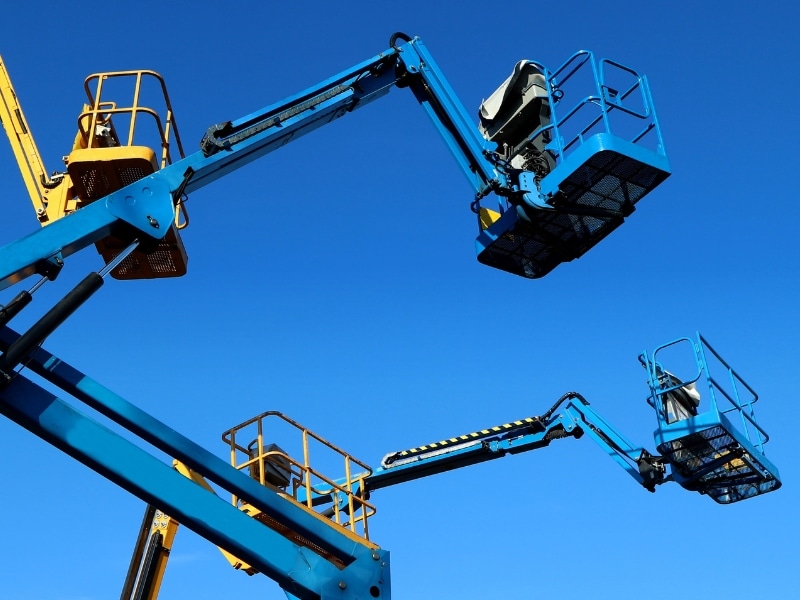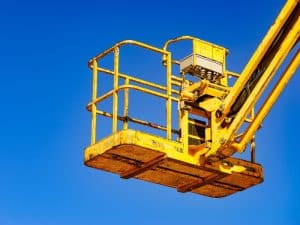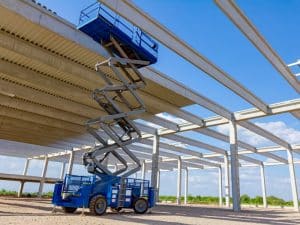Safety and compliance are essential when working with Elevated Work Platforms (EWPs). One of the first steps towards achieving this is enrolling in an EWP training course that offers national accreditation. These courses ensure you meet industry standards and are qualified to operate EWPs safely. This article will dive into the importance of accredited EWP training, the courses available, and how to choose the right one for your needs.
What is an EWP training course?
An EWP training course provides individuals with the necessary expertise and practical skills to operate elevated work platforms safely. These platforms are widely used in construction, maintenance, and other industries requiring work at heights.
- EWP courses focus on safety: These courses ensure operators understand the risks and how to mitigate them.
- Types of EWPs: There are different types of elevated work platforms, such as scissor lifts, boom lifts, and vertical mast lifts.
- Duration of courses: Depending on the type and level of certification, EWP courses typically range from one to two days.
- National accreditation: This ensures that the course meets national safety standards and is recognised across all states in Australia.
These training courses offer a combination of theoretical and practical assessments to ensure operators are confident and capable of safely using EWPs.
Why is EWP training accreditation important?
EWP training accreditation is crucial for individuals and businesses operating in high-risk environments. With national accreditation, your qualification is recognised across the country, ensuring that your training meets the necessary standards for safety and compliance.
- Safety standards: National accreditation ensures that the course meets strict safety requirements.
- Legal compliance: It helps operators and businesses comply with Australian workplace safety regulations.
- Recognised qualifications: Employers across Australia trust nationally accredited training for EWP operators.
- Reduced workplace incidents: Proper training helps to reduce accidents and injuries on the job.
- Improved career prospects: Accredited qualifications are often required to secure employment in construction industries.
EWP training accreditation ensures you have the necessary skills and knowledge to operate safely in high-risk environments, making it a critical step for anyone seeking to work at heights.
Is EWP training mandatory for all operators?
EWP training is mandatory for all operators working with elevated work platforms in Australia. It’s not just a recommendation but a legal requirement to ensure workplace safety.
| Requirement | Details |
| Workplace safety | Training helps operators manage height-related risks. |
| Regulatory compliance | WorkSafe and Safe Work Australia mandate EWP training. |
| Insurance compliance | Many policies require accredited EWP training. |
| Industry standards | Specific industries demand different EWP tickets. |
| Employer responsibility | Employers must ensure operators are properly trained. |
It’s crucial to undergo accredited EWP training to comply with regulations, as EWP certification is important for workplace safety.
What are the EWP courses with national accreditation?
Several EWP courses are available in Australia, each offering national accreditation. The courses vary depending on the type of EWP and the height at which the operator will work.
- Yellow card: This is the most common and essential EWP ticket, focusing on basic elevated work platforms (up to 11m in height).
- Over 11m EWP: Specific training is required for operators working with platforms that exceed 11m in height.
- High-risk work licence: In more hazardous environments, some operators may need a high-risk work licence if they use specific EWPs, such as boom lifts or scissor lifts.
- EWP Refresher Courses: These courses are designed for operators who need to renew or refresh their skills and knowledge on EWP safety and operation.
These nationally accredited EWP training courses ensure that operators meet the safety standards set by the Australian government.
What are the benefits of nationally accredited EWP training?
Nationally accredited EWP training offers numerous benefits for operators and employers.It ensures recognition across Australia and builds a strong foundation for safe and compliant operations.
- Compliance with safety regulations: National accreditation ensures you meet all legal requirements of Australian workplace safety laws.
- Industry recognition: Employers recognise and trust nationally accredited qualifications when hiring new employees.
- Safety assurance: Accredited training includes rigorous assessments to ensure operators understand safety protocols, reducing the risk of accidents.
- Increased job opportunities: With an accredited EWP ticket, you’ll be eligible for a broader range of jobs requiring elevated work platforms.
- Improved skills: Nationally accredited training is designed to teach best practices for operating EWP safely and efficiently.
Nationally accredited training offers peace of mind, ensuring operators have the knowledge to manage risks by elevating work platforms and working safely at heights.
How to choose the right EWP course for your needs?
Choosing the right EWP course depends on the work you will be doing and the elevated work platform you intend to operate. Consider the following factors before making your decision:
| Factors | Considerations |
| Type of EWP | Choose a course based on your operating platform (boom lift, scissor lift). |
| Course Level | Beginners should opt for basic training; advanced roles may require higher-level courses. |
| Duration & Cost | Compare course length and fees to match your schedule and budget. |
| Location | Select a convenient training provider (in-person or online options available). |
| Course reputation | Ensure the provider is an accredited Registered Training Organisation (RTO). |
Choosing the right EWP training course ensures you receive proper training and are ready to work safely at heights.
Are there different EWP course requirements for various worksites?
Yes, different worksites may require specific EWP training depending on the type of work and the environment where workers use the EWP.
- Construction sites: These may require operators to have both EWP and Work Safely at Heights certification.
- Maintenance and industrial jobs: Certain sites may require specific training for the type of EWP used.
- Remote locations: Some worksites in remote areas might require additional training for emergency situations.
- High-risk tasks: EWP operators working with larger machines may need higher-level accreditation for high-risk work.
Understanding the specific requirements for the worksite you’re on can help you select the appropriate EWP training course.
Can you use an EWP ticket in different states?
Yes, all states and territories in Australia recognise a nationally accredited EWP ticket. However, it’s essential to check whether the specific course you’ve completed meets local regulations or if any state-specific requirements exist.
- Nationally recognised qualification: Once you’ve completed a nationally accredited course, your qualification is valid in all states.
- Interstate job opportunities: A nationally accredited EWP ticket allows you to work in different states without retraining.
- State-specific regulations: While your EWP ticket is valid nationwide, each state may have additional safety requirements or regulations to follow.
Completing an EWP course with an accredited EWP training course provider allows you to work in any state and ensures compliance with Australian regulations.
Conclusion
In conclusion, completing a nationally accredited EWP training course is essential for anyone looking to work safely with elevated work platforms. It ensures compliance with Australian safety standards, improves career prospects, and enhances workplace safety.
If you’re ready to take the next step in your career and earn your EWP ticket, get in touch with SafeZone Training to learn more.



